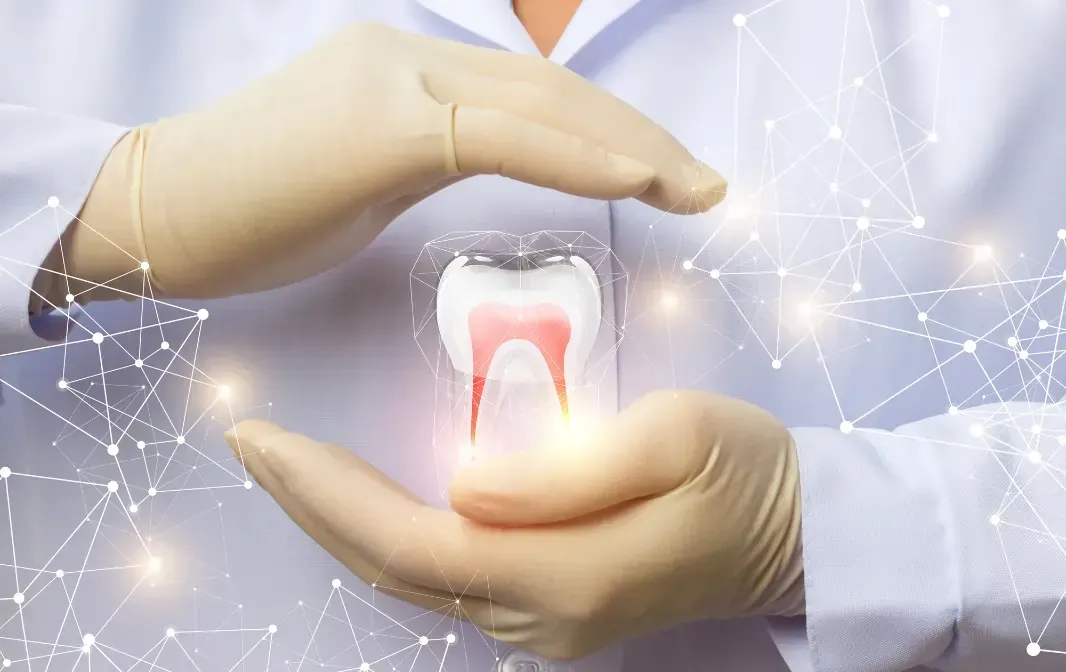Blog

Before the Ball Drops: 3 Dental Fixes You Still Have Time For The last few weeks of the year always bring a feeling of momentum. Holiday events are stacking up, family gatherings are happening back-to-back, and everyone is preparing for a fresh start as the calendar turns. But while you’re planning celebrations, shopping, and tying up loose ends, there’s something else quietly ticking toward midnight: your dental benefits. Most patients don’t realize that when the New Year arrives, unused insurance coverage expires. Deductibles reset. FSA funds often vanish. And any treatment you’ve been postponing instantly becomes a January expense — usually at a higher cost. The good news? You still have time to take care of high-priority dental treatments that will help you start the new year healthier, more confident, and financially ahead. At Kings Park Dental Center , these are the three most impactful fixes we recommend completing before the ball drops. 1. Cosmetic Enhancements to Enter the New Year with Confidence Holiday photos, celebrations, and year-end gatherings put your smile front-and-center. If you’ve been thinking about refreshing your smile, these final weeks of the year are ideal. Professional Whitening for a Noticeably Brighter Smile A brighter smile is one of the fastest and most dramatic cosmetic improvements. Professional whitening uses clinically approved concentrations of hydrogen peroxide that break apart deep-set stains formed by chromogens — the dark pigments found in coffee, tea, red wine, and aging enamel. According to the American Dental Association , professionally supervised whitening is the most effective and safest way to lighten teeth, providing significantly better results than store-bought kits. Dental Bonding to Fix Chips, Gaps, and Uneven Edges Dental bonding is one of the most precise and artistic procedures in cosmetic dentistry. A tooth-colored resin is sculpted carefully onto the enamel and hardened with a special curing light. This technique allows us to repair chips, smooth rough edges, close small gaps, and reshape imperfect teeth in a single visit. The result is a natural, seamless enhancement that instantly refreshes your smile without extensive preparation. Porcelain Veneer Planning or Smile Refinements Even if the full veneer process takes time, beginning the planning phase in December allows you to use expiring benefits or FSA funds toward diagnostic imaging, impressions, or preliminary work. These early steps set the foundation for a beautifully balanced smile in the new year. 2. Crowns and Restorations Before Seasonal Stress Makes Problems Worse If you have a tooth that has been cracked, heavily filled, or causing sensitivity, now is the moment to protect it. The combination of holiday foods, temperature changes, and increased stress chewing can worsen dental issues quickly. A crown functions like a protective shell over a weakened tooth, restoring its strength, stability, and ability to withstand normal chewing forces. Many patients don’t realize how vulnerable a compromised tooth can be during the holiday season. The mix of hot drinks, cold winter air, hard holiday treats, and increased stress clenching can cause small cracks or worn-down areas to worsen quickly. When a tooth isn’t properly supported, even normal eating can lead to deeper fractures, sensitivity, or sudden breakage. A well-designed crown reinforces the tooth and prevents these issues, allowing you to enjoy your meals and celebrations without worrying about discomfort or damage. Waiting can turn a simple restoration into a much bigger, more expensive problem: A small crack can reach the pulp and require a root canal A fragile filling can break during chewing A chipped cusp can escalate into a tooth fracture A compromised tooth can become painful during travel Completing a crown or restoration now prevents emergencies during one of the busiest times of the year — and allows you to use any remaining insurance benefits before they reset on January 1. 3. Overdue Exams & Cleanings — Your Last, Best Use of Benefits This Year If you haven’t had your routine exam or cleaning in the last six months, this is the single most important appointment to schedule before benefits expire. Preventive care protects both your smile and your wallet. A professional cleaning removes plaque and tartar that brushing and flossing alone cannot eliminate. Plaque naturally begins to harden into tartar when it sits on the teeth for too long, and once it does, it becomes firmly attached and can only be removed by a dental professional. Tartar buildup can irritate the gums, contribute to inflammation, and increase the risk of periodontal disease and tooth decay. Regular cleanings help prevent these issues and keep your smile healthier and more comfortable throughout the year. A year-end exam also helps identify issues early — before they become painful or costly. Patients who maintain consistent dental checkups tend to experience fewer emergency treatments throughout the year, especially after the holidays when untreated problems often worsen. (Source: NIH ) Most insurance plans cover exams and cleanings at or near 100%, making this the most financially beneficial way to use your remaining 2025 dental benefits. Finish the Year Strong and Start the New Year with a Healthy, Confident Smile As the year ends, treatments become more valuable — both clinically and financially. Once the clock strikes midnight: Insurance maximums reset Deductibles reset FSA funds may expire Treatment fees can shift Small dental issues can escalate Taking advantage of these last weeks means greater savings, fewer surprises, and a healthier start to the new year. Whether you want a brighter smile, need to protect a tooth with a crown, or are overdue for an exam, December is your opportunity to make meaningful improvements that carry into 2026. At Kings Park Dental Center , we’re here to help you enter the new year with confidence, comfort, and a smile you love sharing. Schedule Your Year-End Dental Appointment Today Don’t wait — the final days of December fill up quickly, and we want to make sure you receive the care, comfort, and attention your smile deserves before the year comes to a close. Contact Us Today: 703-323-3910 Visit Our Website: www.burkefamilydentistry.com/ Step into the new year with confidence, comfort, and a healthier smile — one that carries you into 2026 looking and feeling your very best. Excellence in Care. Confidence in Every Smile. — The Kings Park Dental Center Team

As the holiday season approaches, many of us are thinking ahead to gatherings with family and friends, festive meals, and memorable photographs. It’s a joyful time — but also one when your smile deserves a little extra support. At Kings Park Dental Center , we believe your smile is one of the most expressive accessories you’ll wear this season. That’s why we’d like to guide you through a detailed Pre-Holiday Dental Checklist to help your teeth and gums look and feel their very best. Whether you’ll be hosting, travelling, or simply catching up with loved ones, preparing your oral health now will reduce the chances of surprises during the celebrations — and ensure you enter every room with confidence and ease. 1. Schedule Your Professional Dental Cleaning Early One of the most effective first steps is to book a professional cleaning before the holiday rush begins. A thorough cleaning does more than freshen breath — it removes the built-up plaque and tartar that daily brushing and flossing can sometimes miss. This gives you two big advantages: Your teeth and gums start the season on stronger footing, less likely to experience discomfort or unexpected problems. Your smile is refreshed and bright for photos, gatherings, and social moments. Plus, with many patients seeking last-minute dental visits as the holidays near, securing your appointment now ensures you won’t be left waiting or scheduling around travel or events. 2. Brighten Your Smile with a Whitening or Cosmetic Touch-Up If you’ve found yourself avoiding the camera, holding back your smile, or simply want to feel more confident right now, consider a quick cosmetic upgrade. Whether it’s a professional whitening session, polishing, small bonding, or minor veneer adjustment — these services can make a noticeable difference in a short amount of time. At Kings Park Dental Center, our team will tailor recommendations based on your current tooth shade, enamel health, and lifestyle, so you get results that look natural and polished. This is not about dramatic transformations but subtle improvements that help your smile reflect your best self during holiday photos and celebrations. 3. Protect Your Teeth During Holiday Indulgence There’s something undeniably comforting about holiday flavors — peppermint, caramel, cinnamon, chocolate, and warm cider. But behind these delicious moments lurks the potential for enamel wear and cavities. The balance lies in enjoyment paired with mindfulness. Frequent exposure to acidic beverages such as soft drinks and fruit juices weakens enamel over time by increasing the microscopic porosity of the surface layer.(Source: ScienceDirect ) This erosion makes teeth more prone to staining and decay, especially when sugar is present in the diet. That doesn’t mean avoiding your favorite treats — it means being strategic: Rinse your mouth with water after sweet or acidic foods to neutralize pH levels. Choose sugar-free gum when brushing isn’t possible; the extra saliva helps naturally repair enamel. Limit constant sipping of wine or soda, since repeated exposure (rather than total quantity) causes the most harm. By pairing awareness with indulgence, you’ll enjoy every flavor of the season while keeping your enamel strong and luminous. 4. Address Dental Concerns Before the Rush If you’ve been putting off a filling, noticing sensitivity, or suspect a cracked tooth — now is the time to address it. Holidays are often busy, travel may be involved, and a minor issue can escalate into major discomfort when you least want it. At Kings Park Dental Center , our philosophy is preventive: catching small issues now can save you time, stress, and the possibility of needing emergency care when you’d rather be enjoying a gathering. Treating dental concerns early ensures you won’t miss moments because of unexpected pain or treatment needs. 5. Give the Gift of Oral Health The holidays are about giving — and what better gift than one that promotes confidence, health, and long-term benefit? Consider these ideas: A high-quality electric toothbrush for someone who values a better daily routine. A professional whitening voucher for a loved one who might appreciate a smile refresh. A custom night guard for someone who grinds their teeth, helping protect their smile and prevent damage. These are gifts with staying power. They show you care about someone’s health and well-being — not just this season but the ones ahead. 6. Maintain Healthy Habits Through the Holidays Between parties, travel, and busy schedules, it’s easy to let regular routines slip. But consistent oral hygiene doesn’t have to be complicated. Here’s how to keep your habits strong as the holidays approach: Stay consistent with brushing and flossing. Brush twice a day with fluoride toothpaste and floss before bed — even on long, busy evenings. Drink more water than you think you need. Cooler weather masks thirst, so make hydration a conscious habit. Balance indulgence with intention. Enjoy seasonal treats, but follow them with a quick rinse or a sip of water to minimize acid exposure. Keep a small dental kit handy. A travel-sized toothbrush, mini toothpaste, and floss picks make it easy to stay on track while visiting family or attending events. 7. Maximize Your Year-End Benefits Before They Expire As November unfolds, it’s also the perfect time to take advantage of any remaining dental insurance or Flexible Spending Account (FSA) funds before they expire. Most plans reset in January — and unused benefits don’t roll over. Scheduling now allows you to use the coverage you’ve already paid for while avoiding the December rush. Whether you’re due for a routine checkup or ready to complete a cosmetic or restorative treatment, early booking ensures you get the full benefit of your plan. Preventive care now often means fewer problems — and expenses — later. It’s not just about saving money; it’s about starting the new year with a healthy, confident smile and a clean slate. If you’re unsure what your remaining coverage looks like, our friendly team at Kings Park Dental Center can help review your options and create a treatment timeline that maximizes your year-end benefits. This November, while you’re preparing for the holidays, take a moment to plan for yourself — because your smile deserves a spot on the list, too. The Kings Park Dental Center Promise At Kings Park Dental Center, our mission is clear: to help each patient achieve and maintain a confident, healthy smile through personalized, professional care. Whether you’re here for cleaning, minor cosmetic touch-ups, or restoration, you’ll be greeted with warmth, expertise, and a focus on your comfort and dental wellbeing. As the holiday season nears, we invite you to take proactive steps for your oral health. A little preparation now means fewer worries later — and more moments of joy and connection with your loved ones. Schedule Your Pre-Holiday Appointment Today Don’t delay — the calendar fills quickly, and we want to make sure you receive the attention you deserve. Contact Us Today: 703-323-3910 Visit Our Website: https://www.burkefamilydentistry.com/ Step into the season with confidence, joy, and a smile that shines brighter than the holidays themselves.. The Kings Park Dental Center Team

Picture this: You walk into a room, exchange glances with someone new, and before you even speak — they’re smiling back. That’s the power of your smile in action. It opens doors, disarms tension, and leaves a mark that no business card or elevator pitch ever could. At Kings Park Dental Center , we see it every day — people rediscovering the joy of smiling freely and realizing how transformative that can be. Your smile isn’t just about teeth; it’s yo ur superpower . And when you feel good about it, everything else changes too. The Science of Why Smiling Changes Everything We often underestimate just how deeply our smiles affect us — not just emotionally, but biologically. When you smile, your brain releases endorphins , dopamine , and serotonin — the same “feel-good” chemicals that boost happiness and reduce stress. Even a forced smile can trigger this effect. And here’s the fascinating part: smiling is contagious. Studies in social psychology show that when you smile at someone, their brain lights up in response, mirroring your expression ( verwell mind ). You’re literally spreading happiness — and that ripple effect is one of the simplest ways to connect with others. A smile also changes how people see you. Research from the American Academy of Cosmetic Dentistry found that nearly half of adults believe a person’s smile is their most memorable feature — more than their eyes, voice, or even clothing. A bright, confident smile signals approachability, competence, and trustworthiness, whether you’re meeting someone for the first time or leading a boardroom presentation. Confidence that Opens Doors Think about the moments in life when confidence mattered most — a job interview, a presentation, a date, or even a casual photo with friends. Now imagine approaching each of those moments with a smile you’re genuinely proud of. That’s not vanity — it’s psychology. Smiling boosts your own sense of self-assurance and changes the way others perceive you. In professional life, people who smile often are viewed as more capable and dependable. In social settings, they’re remembered as friendly, likable, and genuine. At Kings Park Dental Center, we’ve seen countless transformations. A young entrepreneur who landed her first investor meeting — and her first funding — after finally fixing a chipped tooth that had bothered her for years. A bride who burst into tears of joy seeing her reflection after whitening treatments made her feel radiant for her wedding photos. A retiree who said he’d “never smiled this much in decades” after getting veneers that looked so natural, even his grandchildren couldn’t tell. These stories aren’t rare. They’re what happens when confidence and health meet artistry and care. Your Smile, Perfected Let’s be honest — not everyone feels comfortable smiling. Maybe it’s discoloration, unevenness, or minor imperfections that hold you back. But the truth is, you don’t have to settle for hiding your smile anymore. At Kings Park Dental Center , we offer a range of advanced, gentle cosmetic treatments designed to help you smile boldly again — all personalized to your natural features, tone, and goals. Professional Whitening: Erase years of stains safely and effectively, often in just one visit. You’ll leave the office with a noticeably brighter smile — and zero sensitivity. Porcelain Veneers: Custom-crafted to your teeth, veneers can instantly correct chips, gaps, or uneven coloring, giving you a camera-ready smile that looks beautifully natural. Invisalign Clear Braces: Straighten your teeth discreetly with nearly invisible aligners designed for comfort and precision. Unlike traditional braces, Invisalign fits seamlessly into your lifestyle — no wires, no metal, no restrictions. You can eat, brush, and live confidently while your smile quietly transforms in the background. Every treatment is performed with precision, care, and a deep understanding that a great smile should never look artificial — it should look like you , only brighter and more confident. Beyond Aesthetics — It’s About Joy A confident smile changes more than how you look — it changes how you live. Patients often tell us they laugh more freely, speak up in meetings, or simply feel lighter after rediscovering their smile. That confidence radiates into every interaction, making them more approachable, energetic, and happy. Science agrees. Smiling has been linked to lower stress, improved immunity, and even longer life expectancy( verwell mind ). When you think about it, investing in your smile isn’t just about looking better — it’s about feeling better, living better, and connecting more deeply with the world around you. Your smile is an investment that pays daily dividends in confidence, success, and happiness. Your Journey Starts Here If you’ve ever thought, “I wish I loved my smile more,” now is the perfect time to act. Whether you’re preparing for a milestone moment or simply ready to invest in yourself, Kings Park Dental Center is here to help you every step of the way. From your first consultation to your final results, you’ll experience care that’s personalized, precise, and genuinely compassionate. Our modern technology ensures comfort and efficiency, while our expert team focuses on one thing — creating results that make you smile every single day. Schedule your consultation today and take the first step toward unlocking your smile’s true superpower. 📞 Contact Us Today: 703-323-3910 🌐 Visit Our Website: https://www.burkefamilydentistry.com/ Because when you love your smile, the world smiles with you. Excellence in Care. Confidence in Every Smile. — The Kings Park Dental Center Team

Have you ever delayed a dental visit because of fear? If so, you’re far from alone. Studies show that up to 61% of people experience some form of dental anxiety —and nearly 1 in 5 skip appointments entirely because of it ( Dental Products Report ). The challenge is real, but so is the solution. At Kings Park Dental Center , we believe visiting the dentist should be a source of confidence—not stress. Our approach blends science, compassion, and comfort to help every patient feel safe, calm, and cared for. Why Do So Many People Fear the Dentist? If you’ve ever thought: “What if it hurts?” “I hate the sounds, smells, or needles.” “I’ve had a bad experience before.” “I’ll feel embarrassed if it’s been years since my last visit.” You’re not alone. In fact, dental fear is the leading reason people skip appointments—more than cost or time. Studies show men and women experience it at similar rates, and age makes little difference. For many, it’s the sounds of drills or past negative experiences that trigger anxiety, leading to delayed or avoided visits.( PMC ) The problem? Avoidance creates a cycle: the longer you wait, the more serious (and intimidating) the issues become. That’s why tackling dental anxiety is about more than comfort—it’s about protecting your health. How Kings Park Dental Center Helps Ease Dental Anxiety A Calm, Supportive Environment From the moment you enter our clinic, you’ll notice the difference. Our waiting area is designed to feel peaceful, not clinical. Gentle lighting, friendly greetings, and a reassuring pace all help reduce stress. Gentle & Compassionate Care Dr. Bursich and our team take the time to explain every step of your treatment. You’re never rushed, and you’re always encouraged to ask questions. We listen carefully, respect your concerns, and adjust care to your comfort level. Comfort-Focused Dentistry From using advanced tools that minimize discomfort to offering breaks during procedures, our focus is always on making sure you feel safe and cared for. Patient Story: From Fear to Confidence One of our patients, Sarah, hadn’t seen a dentist in over 10 years due to fear. She came to us trembling, convinced her treatment would be painful. After experiencing gentle, step-by-step care, she told us: “It was the easiest dental visit of my life. I barely remember the procedure, and for the first time in years, I’m not afraid to smile.” Stories like Sarah’s are why we do what we do—and why you can feel confident taking that first step. FAQs Q1 : Is dental anxiety common? A: Yes. Research shows 15–20% of adults have moderate to severe dental fear.( JDH ) Q2: Will my treatment hurt? A: Our patients often tell us their visits are far easier and more comfortable than expected. We use modern techniques to ensure little to no discomfort. Q3: What if it’s been years since I last saw a dentist? A: You’ll never be judged. We meet you where you are, explain your options clearly, and move forward together at your pace. Ready to Experience Stress-Free Dentistry? You don’t need to wait until pain forces you into the chair. Instead, let’s start with a gentle, no-pressure consultation. We’ll listen to your concerns, explain your options, and help you take the first step—on your terms. 📞 Contact Us Today: 703-323-3910 🌐 Visit Our Website: www.burkefamilydentistry.com Your comfort and trust are at the heart of what we do. Your smile—and your peace of mind—deserve nothing less. Committed to your comfort and your smile — The Kings Park Dental Center Team

There’s More Behind Your Smile Than You Think At Kings Park Dental Center, we know a confident, healthy smile is more than just a nice feature—it’s a window into your mental and emotional well-being . Science confirms what many of us feel intuitively: when your mouth feels good, you feel better overall . A bright, pain-free smile can improve your mood, confidence, and even how others respond to you. In fact, caring for your teeth may be one of the simplest—and most powerful—acts of self-care you can practice daily. Let’s explore how your oral health and mental health are more connected than ever, and how services like cleanings, exams, and SureSmile clear aligners can lead to a happier, healthier version of you. The Mind-Mouth Connection: What the Research Shows Studies have found that poor oral health doesn’t just cause bad breath or gum pain—it can contribute to chronic stress, depression, and low self-esteem . Here’s how: 1. Inflammation Impacts Mood Gum disease and tooth infections can cause systemic inflammation. This inflammation has been linked to increased rates of anxiety and depression . Maintaining good oral hygiene reduces this hidden stressor. 2. Your Smile Affects How You Feel About Yourself When you're embarrassed by your teeth, you may hide your smile or avoid social situations. This can gradually chip away at your confidence. A healthy, attractive smile encourages more social engagement, more confidence, and more joy in daily life. 3. Smiling Triggers Feel-Good Chemistry Even when forced, smiling activates brain chemicals like serotonin, dopamine, and endorphins—natural mood boosters(Source: Health360 ). If you’re proud of your smile, you’re likely to use it more often, naturally lifting your spirits. Healthy Habits That Boost Your Mood and Your Smile Good oral health isn’t complicated—but it does require consistency. These steps support both your dental health and your emotional well-being : Brush twice daily with fluoride toothpaste for two minutes Floss once daily to clean between teeth where your brush can’t reach Visit us every 6 months for a professional cleaning and full dental checkup Drink plenty of water and limit sugar, which fuels harmful bacteria Wear a confident smile proudly —it’s contagious and healing Need help staying on track? Our team makes it easy and enjoyable. Feel-Good Smiles Start with Professional Cleanings A professional cleaning at Kings Park Dental Center is more than a routine visit. It’s a reset for your oral health and a chance to catch issues early— before they turn into discomfort or bigger expenses. During your cleaning, we: Remove hardened plaque (tartar) that can’t be brushed away Polish your teeth for a fresh, bright appearance Examine your gums and screen for oral health concerns Offer personalized advice to help you maintain your smile between visits Regular cleanings protect your teeth—and help keep your mind at ease. Looking for a Smile Upgrade? Discover SureSmile Clear Aligners Straightening your teeth isn’t just about aesthetics—it’s about self-esteem, comfort, and oral function . Whether you're preparing for a big event or simply want to feel more confident every day, SureSmile clear aligners offer an advanced, discreet way to transform your smile.. SureSmile at Kings Park Dental Center Includes: A nearly invisible alternative to traditional metal braces Customized, digitally mapped treatment plans for precision Removable aligners for convenience during meals and brushing Effective, predictable results tailored to your unique smile goals SureSmile doesn’t just align teeth—it aligns your inner and outer confidence. Why Choose Kings Park Dental Center? We don’t just treat teeth—we care for people. At Kings Park Dental Center, you’ll experience: A welcoming, stress-free environment Friendly, highly trained professionals who listen to your concerns Modern technology for precise, efficient treatment A partnership approach to dental care—you’re never just a number here Whether you're here for a routine cleaning, cosmetic enhancement, or comprehensive dental plan, our mission is the same: to make you feel comfortable, confident, and cared for. FAQs Q1: Can poor oral health really affect my mental state? A: Yes. Dental pain, gum disease, and tooth loss have been linked to increased stress, social anxiety, and even depression. Regular dental care helps prevent these issues and supports your overall wellness. Q2: Are SureSmile clear aligners comfortable? A: Not at all. Invisalign is designed for comfort. Most patients find the aligners easy to wear, and any initial pressure is mild and short-lived. Q3: How long does a dental cleaning take? A: Yes. SureSmile aligners are designed to fit snugly and comfortably. Most patients adjust quickly, and any pressure is typically minimal and short-term. Your Smile Deserves the Spotlight You deserve to feel great about your smile—and about yourself. Whether you need a thorough cleaning, are curious about SureSmile, or just want to talk with a team who truly cares, we’re here to help. 📞 Contact Us Today: 703-323-3910 🌐 Visit Our Website: https://www.burkefamilydentistry.com/ Let’s make this the year you smile like you mean it. — The Kings Park Dental Center Team

Let’s be honest: grandma’s dental care was a little... scary . Tales of drilling with no anesthetic, big silver fillings that cracked teeth, and metal braces that felt like medieval torture aren’t just family folklore—they’re true. But dentistry has evolved. At Kings Park Dental Center , we believe everyone deserves to know how much better, safer, and more comfortable modern dental care has become . This month, we’re digging deep into that evolution—so you can see exactly why choosing modern dentistry is investing in your health, confidence, and quality of life. Get ready for a fascinating read that’s equal parts science, history, and reassurance. Fillings: From Mercury and Pain to Natural, Painless Solutions Then: Silver Amalgam and No Numbing In the 1900s–late 20th century: Silver amalgam was the standard filling material. Composition: ~50% elemental mercury, plus silver, tin, copper, and other metals. Mercury expands/contracts with heat—leading to microfractures in teeth. Risk of microleakage, promoting recurrent decay. Limited anesthetic options . Novocaine (first synthesized in 1905) was available, but not reliably used. Drills were belt-driven , generating heat and noise that caused pain. No bonding techniques: Fillings were held in by undercutting healthy tooth structure, weakening teeth. Now: Tooth-Colored Composite Resins At Kings Park Dental Center , we use: Composite resins matched to your tooth color. Bis-GMA-based materials with nano-hybrid fillers for strength and polishability. Bond chemically to tooth structure, preserving more healthy enamel and dentin. Adhesive dentistry techniques —micromechanical bonding that seals better and prevents leakage. Quiet, water-cooled electric handpieces for precision with minimal heat. Effective local anesthetics (like articaine or lidocaine) that deliver complete numbness. Mercury-free policy —safer for you and the environment. A systematic review in Dental Materials found composite fillings have comparable longevity to amalgam in small-to-medium restorations when properly placed. (source: NIH ) Braces: From Headgear Horror to Sure Smile Freedom Then: Bulky, Painful, and Obvious Thick stainless-steel brackets and wires Extra-oral headgear —heavy and socially awkward Painful monthly adjustments No digital modeling—treatment was based on manual estimates Frequent trauma due to uncontrolled force application. Orthodontic pain is typically caused by periodontal ligament compression and inflammation. Without precise force control, older braces often caused more trauma. Now: Sure Smile—Predictable, Discreet, and Comfortable At Kings Park Dental Center, we offer Sure Smile Clear Aligners: Virtually invisible aligners —no metal or brackets Made from high-quality, flexible polymers for gentle, predictable movement Removable —eat, brush, and floss normally Digital treatment planning shows your final smile before you begin Faster treatment times and less discomfort Ideal for mild to moderate cases with high patient satisfaction Studies show clear aligners can effectively treat mild-to-moderate malocclusions with excellent patient satisfaction. (Source: NIH ) Diagnostics: From Shadows to 3D Clarity Then: Limited Imaging Film-based X-rays required biting large, sharp packets. Higher radiation doses (~200-400 µSv per bitewing). 2D images only—no depth perception. Manual developing with chemicals in darkrooms. Now: Advanced, Safer, Informative At Kings Park Dental Center: Digital X-rays : Up to 90% less radiation (~5-20 µSv per bitewing). Instant images with superior resolution. Cone-Beam CT Scanning (CBCT) : Provides 3D imaging for implant planning, root canal diagnostics, and complex surgeries. Typical doses (~45-150 µSv) are carefully justified and lower than medical CT scans. Intraoral cameras : High-definition views of your teeth projected on-screen. Allows real-time patient education and shared decision-making. Digital impressions (e.g., Prime Scan from Densply Sirona scanning): No more gag-inducing impression trays. Accurate models for crowns, bridges, and aligners. According to the ADA , digital radiography reduces radiation while improving diagnostic accuracy. Preventive Care: From Extraction to Preservation Then: Accepting Tooth Loss No fluoride in toothpaste until the 1950s. Public water fluoridation wasn’t widespread until after WWII. Little awareness of bacterial etiology of caries and periodontitis. “Just pull it” was the solution to pain. By age 65, ~50% of Americans in the mid-20th century were completely edentulous (no natural teeth). Now: Keeping Teeth for Life Kings Park Dental Center is built on prevention: Regular cleanings and exams tailored to your risk level. Fluoride varnishes for children and high-caries-risk adults. Dental sealants : ~80% reduction in decay in permanent molars. Periodontal maintenance : Scaling and root planing to control gum disease. Oral cancer screenings at every check-up. Fluoridation is credited with reducing caries prevalence by 25% in communities with treated water. (Source: NIH ) Pain Management: From “Deal with It” to True Comfort Then: Fear and Trauma Minimal anesthesia or outdated agents. No sedation for anxious patients. Dismissive attitude toward pain and fear. Dental anxiety often originates in childhood experiences of pain. Now: Pain-Free Promise at Kings Park Dental Center Effective local anesthetics (articaine/lidocaine) with buffered options for fast, comfortable onset. Sedation options : Nitrous oxide (safe, reversible relaxation). Oral sedation for higher anxiety levels. Compassionate, trauma-informed approach : Gentle techniques. Patient control: we stop if you need a break. Education to reduce fear. Cosmetic Dentistry: From Nonexistent to Transformational Then: Few Options Silver fillings in front teeth. Pulling teeth and replacing with partial dentures. No reliable whitening, bonding, or veneers. Now: Your Smile, Your Choice Kings Park Dental Center offers: Professional whitening —safe, controlled, effective. Composite bonding to fix chips and gaps. Porcelain veneers designed digitally for ideal esthetics. Smile makeovers with 3D previews of your future smile. Our Cutting-Edge Technology At Kings Park Dental Center, your care includes: Digital X-rays with minimal radiation. Cone-Beam 3D imaging for precise planning. Intraoral cameras for patient education. Electric handpieces for quieter, smoother drilling. Paperless records for seamless coordination. State-of-the-art sterilization exceeding CDC guidelines. We don’t just say Comfort First —we invest in it. FAQs Q1: Are fillings really pain-free now? A: Yes! Modern anesthetics and gentle techniques ensure you don’t feel the procedure. Q2: Do you offer Sure Smile? A: Yes—we’re certified providers and offer full clear aligner treatment with digital scans. Q:3 Are X-rays safe? A: Digital X-rays use ~90% less radiation than film. A typical bitewing is about 5-20 µSv—less than a day of background radiation. Q4: Do you accept insurance? A: We work with most major PPO plans and help you maximize your benefits. Q5: What if I’m afraid of the dentist? A: We specialize in helping anxious patients with sedation, patient education, and a compassionate approach. Q6: Can seniors get implants? A: Absolutely. Age alone isn’t a barrier if you’re healthy enough for minor surgery. Contact Us Today Ready to experience the best dentistry Kings Park has to offer? We’re here to make your experience comfortable, advanced, and personalized. 📞 Contact Us Today: 703-323-3910 🌐 Visit Our Website: https://www.burkefamilydentistry.com/ Your comfort comes first. Your health comes first. Your smile comes first. We can’t wait to see you at your next visit. — The Kings Park Dental Center Team

A smile is often the first thing people notice—and remember—about us. But what if you're hesitant to share yours? You’re not alone. Many people feel self-conscious about their teeth, and it silently affects how they show up in the world. At Kings Park Dental Center , we believe that restoring your smile is more than cosmetic—it’s transformative. In this article, we take a closer look at how your dental health directly impacts your confidence , self-image, and quality of life—with insights from psychology, science, and real patient experiences that prove a better smile can truly mean a better you. The Psychology Behind your Smile Your smile isn't just an expression—it's a reflection of your inner world. According to psychological research, smiling activates neural messaging that boosts mood-regulating neurotransmitters like dopamine and serotonin. But there's more. When you're unhappy with your teeth, you tend to smile less—or hide your smile altogether . This behavioral pattern, known as smile suppression , often leads to: Decreased self-confidence Social withdrawal Reduced participation in work or group settings Heightened anxiety about appearance A study published in the Journal of Clinical and Diagnostic Research found that over 80% of individuals who had cosmetic dental procedures reported increased self-esteem and social confidence within months of their treatment. In short: when you’re proud of your smile, you naturally want to share it—and that changes how you interact with the world. Real Transformations: A New Smile, A New Life Every smile we treat at Kings Park Dental Center has a story behind it. These are more than cosmetic cases; they are personal journeys toward greater confidence. Take one patient, a professional woman in her 30s who spent years hiding her teeth in photos and meetings. After receiving Invisalign and whitening treatments, she said, "I never realized how much I was holding back. Now, I walk into rooms with a different kind of energy." Another patient, a local teacher, shared that after addressing dental gaps and staining, “It felt like I had finally caught up to the version of myself I was meant to be. It changed how my students saw me—and how I saw myself.” These stories aren’t rare. They're everyday transformations, and they begin with one decision: to prioritize your smile. The Smile-Confidence Connection: What the Research Shows Let’s look at the science. First impressions matter : Studies show it takes less than 7 seconds to form a first impression—and a confident smile plays a major role.( londonspeechworkshop ) Smiling boosts perceived competence : A 2019 study in Psychological Science revealed that people who smile are often judged as more capable, trustworthy, and intelligent.( psychologicalscience ) Oral aesthetics impact mental health : Dental appearance influences not just social interactions, but also how people perceive their own mental wellness.( NIH ) The takeaway? Your smile is a key contributor to how you are perceived—and how you perceive yourself. Your Smile Makeover Options Whether you’re looking to correct minor imperfections or seeking a full transformation, Kings Park Dental Center offers a personalized approach to cosmetic and restorative dentistry. Each treatment is designed not just for aesthetics—but to enhance your health, function, and confidence. Here’s a closer look at the most effective smile-enhancing treatments available today: 1. Professional Teeth Whitening Purpose: Brighten discolored, yellowed, or stained teeth caused by coffee, tea, wine, tobacco, or aging. How It Works: Our in-office teeth whitening treatments use high-concentration peroxide gels and safe UV activation to dramatically whiten teeth in as little as one session. For those who prefer at-home care, we also provide custom trays with professional-strength whitening gels. What to Expect: Noticeable results after one visit Minimal sensitivity with professional-grade products Maintenance options to preserve your white smile Ideal For: Patients with healthy teeth and gums who want a fast, affordable confidence boost. 2. Sure Smile Clear Braces Purpose: Straighten crooked, crowded, or gapped teeth discreetly—without metal brackets or wires. How It Works: Invisalign uses a series of clear, removable trays that gradually shift teeth into alignment. Each set is worn for 1–2 weeks, with progress monitored regularly. What to Expect: Nearly invisible, comfortable fit Custom-designed using 3D digital scans Most cases completed within 6 to 18 months Ideal For: Teens and adults seeking an alternative to traditional braces—especially professionals who want subtle treatment. 3. Porcelain Veneers Purpose: Instantly correct multiple cosmetic concerns—such as chipped teeth, discoloration, uneven spacing, or worn enamel—with a flawless, natural-looking finish. How It Works: Veneers are ultra-thin porcelain shells bonded to the front of your teeth. Each one is custom-designed to match your ideal color, shape, and size for a perfect, symmetrical look. What to Expect: Typically completed in 2–3 visits Long-lasting with proper care (10–15+ years) Stain-resistant and incredibly lifelike Ideal For: Patients looking for a dramatic, celebrity-style smile transformation without extensive dental work. Pro Tip: Veneers are often called a “smile shortcut” because they offer a comprehensive fix for multiple flaws with minimal invasiveness. 4. Dental Implants Purpose: Permanently replace missing teeth for a natural look and feel—restoring both aesthetics and functionality. How It Works: Implants consist of a titanium post (which acts like a tooth root) surgically placed into the jawbone. A crown is then attached, mimicking the look and function of a real tooth. What to Expect: A durable, permanent solution Prevents bone loss and facial collapse Restores chewing ability and facial structure Ideal For: Patients missing one or more teeth or those looking to replace dentures with a stable, permanent solution. 5. Cosmetic Bonding and Tooth Contouring Purpose: Quickly and affordably fix small chips, cracks, minor gaps, or uneven tooth edges. How It Works: Bonding uses a tooth-colored composite resin that is shaped, polished, and cured in one appointment. Contouring involves gently reshaping enamel for a smoother, more uniform appearance. What to Expect: Quick (often completed in under an hour) Painless and non-invasive Immediate results with no downtime Ideal For: Anyone looking for a budget-friendly smile enhancement or who wants to test cosmetic changes before committing to veneers. Each treatment is paired with expert consultation and care, ensuring your comfort and confidence from the first appointment to your final reveal. More Than Looks: The Health-Confidence Cycle Here’s something people often overlook: a beautiful smile is usually a healthy one . When people invest in cosmetic dentistry, they tend to develop better daily habits—brushing, flossing, regular cleanings—which reinforce oral health and long-term wellness. And the result? A powerful cycle: Improved smile → Boosted confidence → Increased motivation for self-care → Stronger health outcomes → Even more confidence. That’s not just a makeover. That’s a life upgrade. Start Your Smile Transformation Today If you’ve been hesitating to smile—whether in photos, at meetings, or even with friends and family—it’s time to take the first step. You deserve to feel confident, and we’re here to help you achieve that with care, compassion, and expertise. The Kings Park Dental Center team is ready to walk with you on your journey to a healthier, more radiant smile. 📞 Contact Us Today: 703-323-3910 🌐 Visit Our Website: https://www.burkefamilydentistry.com/ Let your smile reflect who you really are—confident, empowered, and ready to take on the world. The Kings Park Dental Center Team

Introduction: Oral Health and Heart Disease—A Critical Connection For years, dental care and cardiovascular health were considered two entirely separate areas of medicine. However, extensive research now shows that what happens in your mouth doesn’t stay in your mouth—it can have serious effects on your heart. At Kings Park Dental Center , we believe that preventive care is the most powerful tool in protecting both your smile and your overall health. One of the most important, and often overlooked, ways to reduce your risk of heart disease is by maintaining regular dental cleanings. Understanding the Link: How Gum Disease Affects the Heart The connection between oral health and cardiovascular health lies primarily in inflammation and the spread of bacteria. When plaque—a sticky film of bacteria—builds up on teeth and along the gum line, it can lead to gingivitis (early gum disease). If untreated, gingivitis can develop into periodontitis , a more severe form of gum disease that causes the gums to pull away from the teeth, creating pockets that become infected. This infection can damage the supporting structures of the teeth and create chronic inflammation. The problem extends beyond the mouth. Harmful bacteria from infected gums can enter the bloodstream, where they may travel to the arteries. Once there, they can contribute to arterial inflammation and the development of atherosclerosis —a condition in which plaque builds up inside the arteries, reducing blood flow and increasing the risk of heart attacks and strokes. Numerous studies, including those published in the Journal of the American Heart Association and Circulation , support the theory that individuals with periodontal disease are significantly more likely to suffer from heart conditions compared to those with healthy gums. What Regular Dental Cleanings Do to Reduce Risk While brushing and flossing are essential daily habits, they are not always enough to remove hardened plaque (tartar) and bacteria from the mouth. That’s where professional dental cleanings come in. Here’s how regular cleanings directly benefit your heart health: Plaque and tartar removal : Cleanings eliminate harmful deposits that contribute to gum inflammation and bacterial growth. Reduction of bacterial load : Fewer bacteria in the mouth mean fewer can enter the bloodstream. Early detection of oral health issues : Identifying signs of gum disease early prevents progression to advanced stages that increase systemic risk. Lower systemic inflammation : With healthier gums, the body experiences less inflammatory response, which can lower the burden on the heart and circulatory system. At Kings Park Dental Center, we use state-of-the-art diagnostic tools and gentle techniques to ensure each cleaning is both thorough and comfortable, especially for patients managing other health conditions. Who Is Most at Risk? While everyone benefits from preventive dental care, certain individuals are at greater risk for complications arising from the mouth-heart connection: Individuals with a history of cardiovascular disease Patients diagnosed with high blood pressure, high cholesterol, or diabetes Those who smoke or have smoked in the past Patients with chronic gum disease or persistent inflammation Individuals with a family history of heart conditions For these patients, regular dental cleanings become more than routine—they are an essential part of a whole-body preventive care strategy. Signs You Shouldn’t Ignore Not all symptoms of gum disease are painful or obvious. Here are common signs that may indicate a problem is developing: Gums that bleed during brushing or flossing Swollen, red, or tender gums Persistent bad breath Gums pulling away from the teeth (recession) Loose or shifting teeth If you notice any of these symptoms, schedule a dental exam as soon as possible. Early intervention is key to protecting both your oral and cardiovascular health. Preventive Care: A Proactive Step Toward Heart Health The good news is that gum disease is both preventable and manageable with proper care. By seeing your dentist regularly, you not only safeguard your teeth and gums but also reduce the risk of developing heart-related complications.4 At Kings Park Dental Center, we recommend: Scheduling a professional dental cleaning at least twice per year Maintaining a daily routine of brushing and flossing Reporting any changes in oral health or symptoms to your dentist Sharing your medical history, especially if you have heart-related conditions Our approach is collaborative and customized. For patients with known cardiovascular issues, we work closely with their primary care providers or cardiologists to ensure all aspects of their health are considered in their dental treatment plan. Your health is interconnected—and your dental care plays a vital role. If it has been more than six months since your last cleaning, or if you’re managing a heart condition, now is the time to take action. Schedule Your Cleaning Today Kings Park Dental Center is committed to supporting your total health, not just your teeth. Our experienced team provides compassionate, evidence-based care in a comfortable setting—because we know your dental visit can impact your entire well-being. Contact us to schedule your next cleaning: 🌐 Visit Our Website: https://www.burkefamilydentistry.com/ 📞 Contact Us: 703-323-3910 Stay Heart-Healthy and Keep Smiling! The Team at Kings Park Dental Center

Dear Reader, At Kings Park Dental Center , we believe that a confident smile starts with the right oral care products. With countless options available, choosing the ideal toothpaste and mouthwash can be overwhelming. That’s why we’ve created this comprehensive guide to help you navigate your choices confidently. Whether you’re aiming to prevent cavities, manage sensitivity, or achieve a whiter smile, we’ve got you covered. So, grab a cup of tea and get ready to learn everything you need to know about choosing the best oral care products for your needs! Understanding Your Oral Care Needs Before you hit the dental care aisle, take a moment to assess your oral health goals. Are you looking to: Prevent cavities and tooth decay? Manage sensitivity and pain? Remove stains for a brighter smile? Combat gum disease and freshen breath? Understanding your specific needs will help you zero in on the right products. If you’re unsure, consider scheduling a consultation with us at Kings Park Dental Center for personalized advice! Types of Toothpaste: Find Your Perfect Match? Not all toothpastes are created equal. Here’s a detailed look at popular types and who they’re best for: Fluoride Toothpaste: Best for: Cavity prevention. Key benefits: Strengthens enamel and prevents decay. Make sure to check for the ADA Seal of Acceptance for a trusted choice. Whitening Toothpaste: Best for: Removing surface stains. Key benefits: Contains mild abrasives and hydrogen peroxide. Note: Excessive use can cause enamel erosion—use in moderation! Sensitivity Toothpaste: Best for: Reducing pain from hot or cold foods. Key benefits: Often contains potassium nitrate or stannous fluoride to block pain signals to nerves. Use daily for at least two weeks to notice results. Natural Toothpaste: Best for: Those avoiding synthetic ingredients. Key benefits: Free from artificial flavors, sulfates, and often includes ingredients like charcoal or coconut oil . Look for fluoride-free options if preferred. ✨ Expert Tip: Rotate toothpaste types based on your current needs (e.g., whitening during special occasions, sensitivity relief daily). Choosing the Right Mouthwash: Beyond Fresh Breath Mouthwash can do much more than just freshen breath. Choose the right type based on your oral health goals: Antibacterial Mouthwash: Best for: Fighting plaque and preventing gum disease. Key ingredients: Chlorhexidine or essential oils like eucalyptus and tea tree. Note: Long-term use of chlorhexidine may cause staining—alternate with natural options. Fluoride Mouthwash: Best for: Strengthening enamel and preventing cavities. Usage tip: Avoid rinsing with water immediately after to allow fluoride to work effectively. Alcohol-Free Mouthwash: Best for: Those with dry mouth or sensitivity. Key benefits: Won’t cause a burning sensation or exacerbate dryness. Look for xylitol as a sweetener—it also fights cavity-causing bacteria! Natural Mouthwash: Best for: Fans of herbal and clean products. Key ingredients: Tea tree oil, aloe vera, or neem. Ensure the product is certified organic for the best results. 💡 Pro Tip: For the best results, swish mouthwash for at least 30 seconds and avoid eating or drinking for 30 minutes afterward. Key Ingredients to Look For: What’s on the Label? Deciphering product labels can be tricky. Here’s a guide to the most beneficial ingredients: Fluoride: The gold standard for cavity prevention. Opt for products with 1,000 to 1,500 ppm of fluoride. Xylitol: Reduces bacteria that cause cavities and is often found in natural toothpastes and mouthwashes . Essential Oils: Eucalyptus, tea tree, and peppermint offer antibacterial and anti-inflammatory benefits. Activated Charcoal: Popular for its whitening effects but can be abrasive —limit use to 1-2 times a week . ⚠️ Ingredients to Avoid: Triclosan: Linked to antibiotic resistance. Sodium Lauryl Sulfate (SLS): Can cause mouth irritation for some users. Recommendations for Specific Needs For Families: Choose fluoride toothpaste with mild flavors and alcohol-free mouthwash. For Sensitive Teeth: Desensitizing toothpaste and alcohol-free rinses are ideal. For Whitening: Opt for toothpaste with hydrogen peroxide or baking soda and a natural whitening mouthwash. For Dry Mouth: Products containing xylitol or aloe vera help maintain moisture levels. Visit Us for Personalized Advice! Need help choosing the right products? Schedule a visit to Kings Park Dental Center for expert recommendations tailored to your needs. 🌐 Visit Our Website: https://www.burkefamilydentistry.com/ 📞 Contact Us: 703-323-3910 Thank y o u for trusting Kings Park Dental Center with your smile. Stay tuned for more tips and expert advice! With warm regards, The Kings Park Dental Center Team
